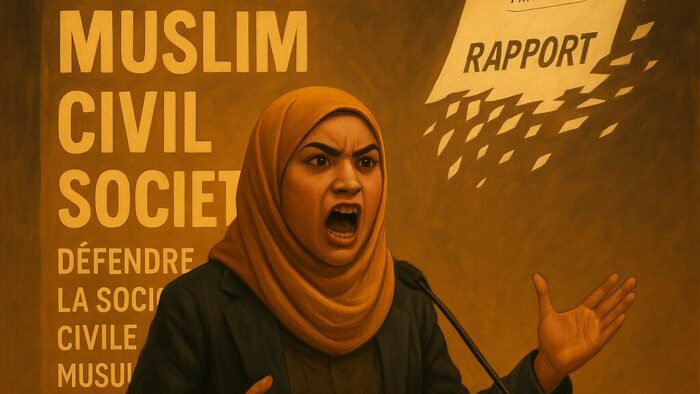A report presented to President Emmanuel Macron warns of “entryism” by Islamism in France, threatening national cohesion. On 21 May 2025, BBC News reported that senior civil servants identified evidence of Muslim Brotherhood “entryism” into France’s republican institutions, including schools and local government. The report claims this represents a new phenomenon distinct from separatism, involving deliberate infiltration to change French society from within.
The article begins:
Islamists are infiltrating France’s republican institutions and are a threat to national cohesion, according to a report presented to President Emmanuel Macron on Wednesday. The report, drawn up by two senior civil servants, claims to find evidence for a policy of “entryism” by the Muslim Brotherhood into public bodies like schools and local government. After a meeting of his security cabinet, Macron asked the government to come up with “new proposals” by early next month in light of the seriousness of the report’s conclusions. Secularism is a core tenet of France’s national identity. According to an Élysée official speaking off the record, there is a “new phenomenon — entryism — which is different from separatism”. While separatism implied Muslims living in a parallel society in France, “entryism means getting involved in republican infrastructure… in order to change it from the inside. It requires dissimulation… and it works from the bottom up,” the official said.
Read more: https://www.bbc.com/news/articles/ckgnnelvz0do
Key Points
- The report identifies the Federation of Muslims of France (FMF) as controlling 139 places of worship and 280 associations across France.
- The authors claim the Muslim Brotherhood targets Europe with financial backing from Turkey and Qatar after losing Middle Eastern influence.
- Interior Minister Bruno Retailleau warns of “below-the-radar Islamism” attempting to impose sharia law on French society gradually
- The Federation of Muslims of France angrily rejected allegations, calling accusations dangerous stigmatization of Islam and Muslims.
Islamism in France: Muslim Brotherhood Networks
The debate over Islamism in France is increasingly shaped by the activities of Muslim Brotherhood-linked networks, with far-right figures like Marine Le Pen calling for a ban on the French Muslim Brotherhood and the state intensifying scrutiny of organizations accused of entryism. The CFCM’s structure and foreign ties have come under particular focus, as have Brotherhood-affiliated groups that reject government initiatives like the Charter of Republican Values and mobilize youth against perceived state hostility. Government actions include ending funding for Muslim schools with Brotherhood ties and facing legal challenges from affected institutions, while parliamentary tensions have erupted over the invitation of CCIE, a group linked to previously banned Brotherhood-aligned organizations.
The dissolution of the Collective Against Islamophobia in France (CCIF) and the role of Brotherhood figures in new imam supervisory bodies highlight the contest over religious authority and integration. These developments unfold against a backdrop of government efforts to counter “Islamist separatism,” as President Macron has announced stricter laws to defend secular values and restrict foreign influence. At the same time, the Brotherhood’s strategy of “entryism”—infiltrating institutions to effect change from within—has been identified by official reports as a key risk to national cohesion. France’s approach is closely watched across Europe, as debates over secularism, integration, and religious freedom intensify in the face of changing demographics and security concerns.
External References:
-
French report warns of Islamist ‘entryism’ as risk to national cohesion (BBC, 2025)
-
France’s Macron vows to fight ‘Islamist separatism’ (BBC, 2020)
-
France Islam: Muslims under pressure to sign French values charter (BBC, 2020)
Disclaimer
The Global Influence Operations Report (GIOR) employs AI throughout the posting process, including generating summaries of news items, the introduction, key points, and often the “context” section. We recommend verifying all information before use. Additionally, images are AI-generated and intended solely for illustrative purposes. While they represent the events or individuals discussed, they should not be interpreted as real-world photography.









